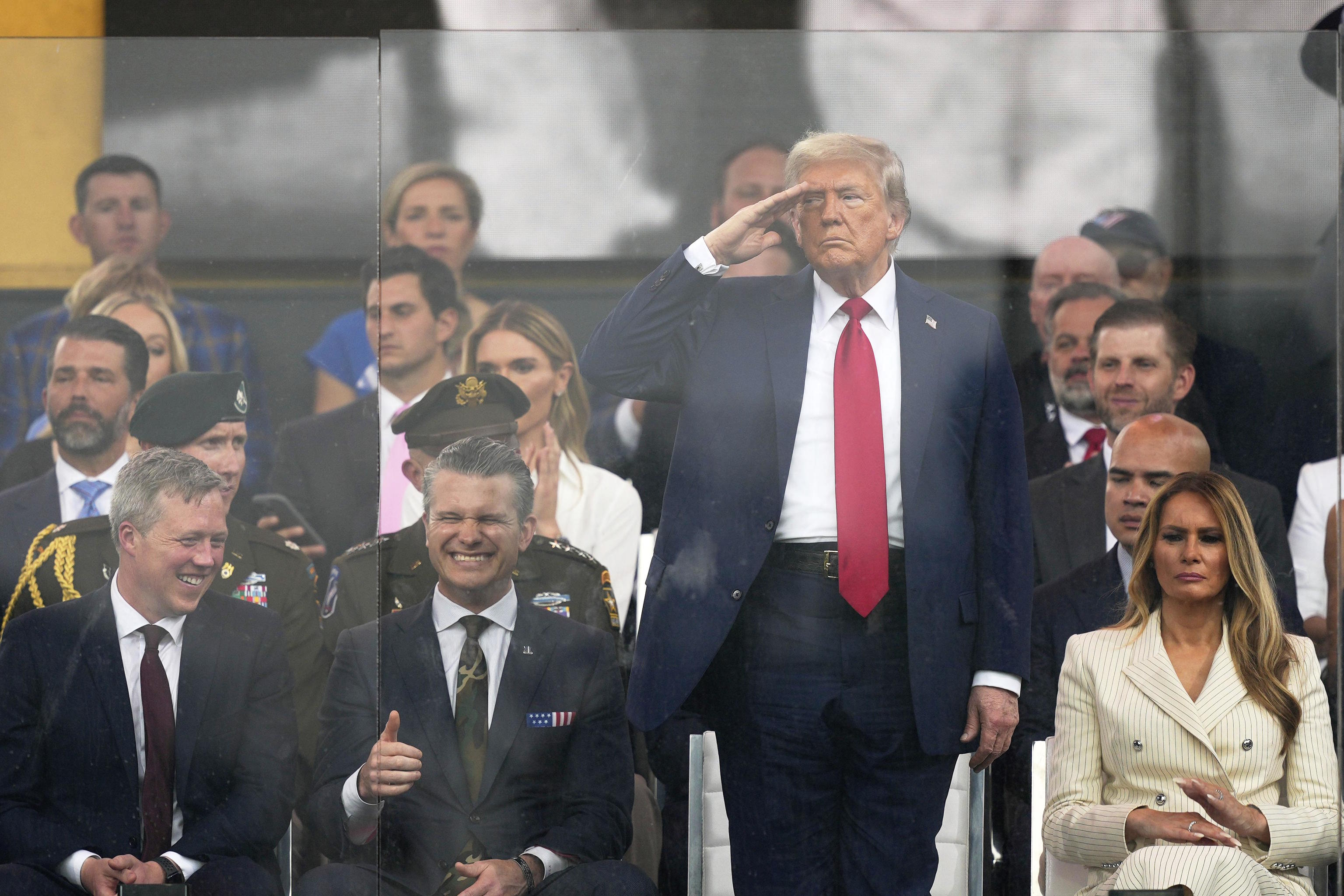Donald Trump has many doubts and does not know how to proceed. His style is usually aggressive, confident. Even if the data or facts do not support his theories, he has clear ideas. And although he is accustomed to rectifying, correcting, or backtracking, which has earned him the nickname TACO, the acronym in English for the phrase "Trump always backs down", his narrative is always prepared. Except when it comes to Iran. This Thursday, pressured by all parties, listening to the complaints and reproaches of his base, aware that he is being dragged from Tel Aviv, he has said he will make a decision before July. "Based on the fact that there is a substantial probability of negotiations with Iran in the near future, I will make my decision in the next two weeks," he stated in a statement read by his chief spokesperson, Karoline Leavitt.
The American president is full of doubts and nerves, as evidenced by his criticisms of the media or political leaders like Emmanuel Macron for commenting on his strategy. "The Wall Street Journal has no idea what I think about Iran!" he added this Thursday after the New York newspaper reported earlier that the president, after meeting with his National Security officials, had approved provisional plans to assist Israel in attacking Iranian nuclear facilities, although he had not yet given the order.
The president has too many open fronts on this issue and uses one of his favorite tools, the two-week timeframe. Since January 20, he has given Russia the same deadline on three or four different occasions, without any follow-through.
For years, Trump wielded the power of the MAGA world with the message of "America First" and criticizing the political establishment in Washington as warmongering. Now both things are turning against him, with many of his friends and supporters distancing themselves from a possible new intervention in the Middle East. Trump presents himself as a leader, but also seems to be constantly following Benjamin Netanyahu. And he fears that participating in the bombings will inflame the region.
Trump always despised the neocons, who led the U.S. to invade Iraq over 20 years ago and who still believe that Iran must be attacked before it's too late, but at the same time, he is starting to follow in their footsteps, leaning towards an intervention based on highly questionable intelligence and with an increasing risk of getting entangled in regime changes, as influential Republicans like Senator Ted Cruz advocate, and nation-building processes, which were disastrous in Iraq.
According to CBS, Trump has been "briefed on the risks and benefits of bombing Fordo, Iran's most heavily fortified nuclear facility, and leans towards the idea that deactivating it is necessary due to the risk of weapons being produced in a relatively short period of time." Trump, who convened his team on Wednesday afternoon and again on Thursday at noon, is aware of the diplomatic efforts of the main European countries, who will meet with the Iranian Foreign Minister in Switzerland on Friday. According to sources from the network, John Ratcliffe, CIA director, has said in closed-door meetings that Iran is very close to possessing nuclear weapons, despite the official line from the intelligence community that Iran's leadership has not formally ordered the construction of bombs.
The quote from Ratcliffe that has circulated most in Washington is a sports analogy, saying that denying that Iran wants the bomb is absurd, and it would be like saying that a football team that has fought to bring the ball to just one yard from the goal line doesn't really want a touchdown.
The potential consequences of an escalation also threaten the administration indirectly. In principle, Iran has the means to close the Strait of Hormuz, a measure that could trap any U.S. Navy ship in the Persian Gulf. Additionally, oil, which remained surprisingly stable during Israel's attacks on Tehran, has started to rise. And its price is an obsession for the president, who publicly scolded his Energy Minister last week over the barrel price, something that is hardly under his control.
So now, although he can change his mind at any time, he seems to leave a door open for negotiations with the Iranians, whether direct or indirect, after demanding "absolute surrender" and boasting that "we already control all of the country's airspace."
"We must trust President Trump, his instincts are incredible. He has been unequivocally insistent for decades that Iran cannot have nuclear weapons," the White House spokesperson insisted today. "He kept us safe in his first term and will do so again now," she added, sending a message to MAGA members concerned about another distant war.
